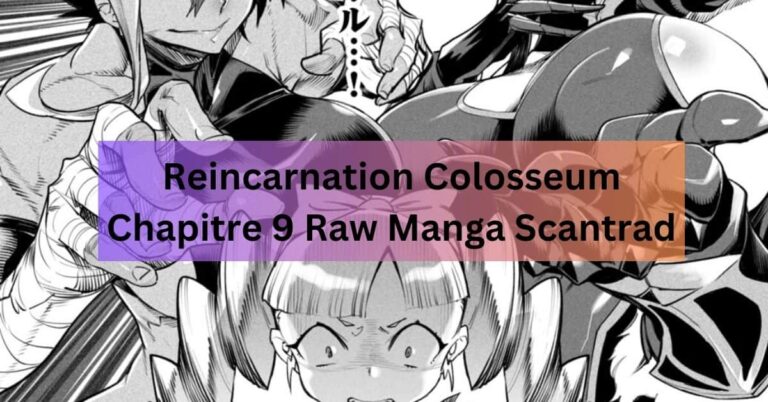fugue across worlds chapter 1
Fugue Across Worlds Chapter 1: An In-Depth Exploration
In the realm of speculative fiction, few narratives capture the imagination quite like “Fugue Across Worlds Chapter 1.” This captivating tale invites readers to traverse the boundaries of reality, exploring the intricate tapestry of parallel universes and the profound implications of choice and consequence. The story begins with a protagonist who finds themselves at a crossroads, where every decision leads to a different world, each with its own unique challenges and wonders. As we delve into “Fugue Across Worlds Chapter 1,” we uncover not just a story, but a philosophical exploration of existence itself.
The narrative is rich with themes of identity, fate, and the interconnectedness of all things. The author masterfully weaves a plot that is both engaging and thought-provoking, prompting readers to reflect on their own lives and the myriad paths they could take. In this article, we will dissect “Fugue Across Worlds Chapter 1,” examining its characters, themes, and the broader implications of its narrative. By the end, you will have a comprehensive understanding of this remarkable work, making it easier to appreciate the depth and complexity of the story. Join us as we embark on this journey through “Fugue Across Worlds Chapter 1,” where every turn leads to a new discovery.
Understanding the Premise of Fugue Across Worlds
The premise of “Fugue Across Worlds Chapter 1” revolves around the concept of parallel universes, a popular theme in science fiction. The protagonist, who remains unnamed for much of the chapter, is thrust into a reality where their choices create divergent paths. This idea of a “fugue” suggests a musical term, where different melodies intertwine, creating a complex harmony. In this narrative, each choice made by the protagonist leads to a new world, each with its own set of rules and consequences.
The author uses this framework to explore the nature of free will. Are we truly in control of our destinies, or are we merely players in a grand cosmic game? The protagonist’s journey through various worlds serves as a metaphor for the choices we all face in life. Each world reflects a different aspect of the protagonist’s personality, desires, and fears, making the narrative deeply personal and relatable.
The Protagonist: A Journey of Self-Discovery
At the heart of “Fugue Across Worlds Chapter 1” is the protagonist, whose journey is one of self-discovery. As they navigate through different realities, they encounter versions of themselves that embody various traits and choices. This exploration allows the reader to witness the protagonist’s growth and transformation.
The author skillfully crafts the protagonist’s character, making them relatable and complex. Their struggles and triumphs resonate with readers, prompting them to reflect on their own lives. The protagonist’s journey is not just about exploring new worlds; it is about understanding who they are and what they truly desire.
The Role of Choice in the Narrative
Choice is a central theme in “Fugue Across Worlds Chapter 1.” Each decision made by the protagonist leads to a new reality, highlighting the weight of their choices. The narrative poses the question: What if we could see the consequences of our decisions before making them? This exploration of choice adds depth to the story, making it not just a fantastical adventure but a profound commentary on the human experience.
The author uses various scenarios to illustrate the impact of choice. For instance, in one world, the protagonist chooses to pursue a career in art, leading to a life filled with creativity and passion. In another, they opt for a more conventional path, resulting in a life of stability but lacking fulfillment. These contrasting realities serve to emphasize the importance of following one’s true calling.
Thematic Elements: Identity and Existence
“Fugue Across Worlds Chapter 1” delves into themes of identity and existence. As the protagonist encounters different versions of themselves, they grapple with questions of who they are and what defines them. The narrative challenges the notion of a singular identity, suggesting that we are multifaceted beings shaped by our experiences and choices.
The exploration of existence is equally profound. The author invites readers to ponder the nature of reality and the interconnectedness of all things. Each world the protagonist visits is a reflection of their inner self, prompting them to confront their fears, desires, and regrets. This introspective journey adds a layer of depth to the narrative, making it a rich tapestry of philosophical inquiry.
The World-Building: A Tapestry of Realities
One of the standout features of “Fugue Across Worlds Chapter 1” is its intricate world-building. The author creates a diverse array of realities, each with its own unique characteristics and rules. From dystopian landscapes to utopian societies, the worlds are vividly imagined and meticulously crafted.
The attention to detail in world-building enhances the reader’s immersion in the story. Each reality feels tangible and alive, inviting readers to explore alongside the protagonist. The author’s ability to create such diverse settings showcases their creativity and skill, making “Fugue Across Worlds Chapter 1” a truly engaging read.
The Narrative Structure: A Non-Linear Journey
The narrative structure of “Fugue Across Worlds Chapter 1” is non-linear, reflecting the chaotic nature of the protagonist’s journey. As they navigate through different worlds, the story unfolds in a way that mirrors the unpredictability of life. This structure keeps readers on their toes, as they are constantly introduced to new realities and challenges.
The author employs various literary techniques to enhance the non-linear narrative. Flashbacks, foreshadowing, and vivid imagery are used to create a dynamic reading experience. This approach not only adds excitement to the story but also deepens the reader’s understanding of the protagonist’s journey.
The Emotional Resonance: A Connection to the Reader
Emotional resonance is a key aspect of “Fugue Across Worlds Chapter 1.” The author skillfully evokes a range of emotions, from joy to despair, as the protagonist navigates their journey. This emotional depth allows readers to connect with the story on a personal level, making it more impactful.
The protagonist’s struggles and triumphs mirror the challenges we all face in life. As they confront their fears and make difficult choices, readers are prompted to reflect on their own experiences. This emotional connection is what makes “Fugue Across Worlds Chapter 1” a powerful narrative that lingers long after the last page is turned.
The Philosophical Underpinnings: A Reflection on Life
At its core, “Fugue Across Worlds Chapter 1” is a philosophical exploration of life and existence. The narrative invites readers to ponder profound questions about free will, identity, and the nature of reality. The author weaves these themes seamlessly into the story, prompting readers to engage in introspection.
The philosophical underpinnings of the narrative encourage readers to consider their own lives and the choices they make. By exploring the consequences of the protagonist’s decisions, the author highlights the importance of living authentically and embracing one’s true self.
The Impact of “Fugue Across Worlds Chapter 1” on the Genre
“Fugue Across Worlds Chapter 1” has made a significant impact on the speculative fiction genre. Its unique premise and thought-provoking themes have resonated with readers, inspiring a new wave of narratives that explore the complexities of choice and existence. The author’s innovative approach to storytelling has set a new standard for speculative fiction, encouraging other writers to push the boundaries of the genre.
The book’s success has sparked discussions about the nature of reality and the human experience, making it a relevant and timely read. As more readers discover “Fugue Across Worlds Chapter 1,” its influence on the genre will undoubtedly continue to grow.
FAQs about Fugue Across Worlds Chapter 1
1. What is the main theme of Fugue Across Worlds Chapter 1?
The main theme of “Fugue Across Worlds Chapter 1” revolves around the exploration of choice and its consequences. The narrative delves into the idea of parallel universes, where each decision made by the protagonist leads to a different reality. This theme prompts readers to reflect on their own choices and the impact they have on their lives.
2. Who is the protagonist in Fugue Across Worlds Chapter 1?
The protagonist in “Fugue Across Worlds Chapter 1” is an unnamed character who embarks on a journey through various parallel universes. As they navigate these worlds, they encounter different versions of themselves, each representing different choices and aspects of their identity. This journey of self-discovery is central to the narrative.
3. How does the author build the worlds in Fugue Across Worlds Chapter 1?
The author employs vivid imagery and detailed descriptions to create diverse and immersive worlds in “Fugue Across Worlds Chapter 1.” Each reality is meticulously crafted, showcasing unique characteristics and rules. This attention to detail enhances the reader’s experience, making the worlds feel tangible and alive.
4. What philosophical questions does Fugue Across Worlds Chapter 1 raise?
“Fugue Across Worlds Chapter 1” raises several philosophical questions, including the nature of free will, identity, and the interconnectedness of existence. The narrative invites readers to ponder the implications of their choices and the impact those choices have on their lives and the lives of others.
5. How does the narrative structure of Fugue Across Worlds Chapter 1 affect the story?
The non-linear narrative structure of “Fugue Across Worlds Chapter 1” reflects the chaotic nature of the protagonist’s journey. This approach keeps readers engaged and on their toes, as they are constantly introduced to new realities and challenges. The structure enhances the overall reading experience, making it dynamic and unpredictable.
6. What emotional themes are explored in Fugue Across Worlds Chapter 1?
“Fugue Across Worlds Chapter 1” explores a range of emotional themes, including joy, despair, fear, and hope. The protagonist’s struggles and triumphs resonate with readers, prompting them to connect with the story on a personal level. This emotional depth adds to the narrative’s impact and makes it a powerful read.
7. How has Fugue Across Worlds Chapter 1 influenced the speculative fiction genre?
“Fugue Across Worlds Chapter 1” has made a significant impact on the speculative fiction genre by introducing innovative themes and narrative techniques. Its exploration of choice and existence has inspired other writers to push the boundaries of the genre, leading to a new wave of narratives that engage with similar philosophical questions.
Conclusion
In conclusion, “Fugue Across Worlds Chapter 1” is a remarkable exploration of choice, identity, and existence. Through its intricate narrative and vivid world-building, the story invites readers to reflect on their own lives and the choices they make. The protagonist’s journey serves as a powerful metaphor for the human experience, highlighting the importance of living authentically and embracing one’s true self.
The themes of “Fugue Across Worlds Chapter 1” resonate deeply, prompting readers to engage in introspection and consider the impact of their decisions. The emotional depth of the narrative creates a connection between the protagonist and the reader, making the story all the more impactful.
As we navigate through the complexities of life, “Fugue Across Worlds Chapter 1” serves as a reminder of the beauty and chaos of existence. The philosophical questions raised in the narrative encourage us to ponder our own realities and the paths we choose to take. Ultimately, “Fugue Across Worlds Chapter 1” is not just a story; it is a journey of self-discovery that lingers long after the last page is turned.
In a world filled with choices, “Fugue Across Worlds Chapter 1” challenges us to embrace our individuality and navigate the complexities of existence with courage and authenticity. As we reflect on the protagonist’s journey, we are reminded that every choice we make shapes our reality, and it is through these choices that we truly come to understand ourselves.


